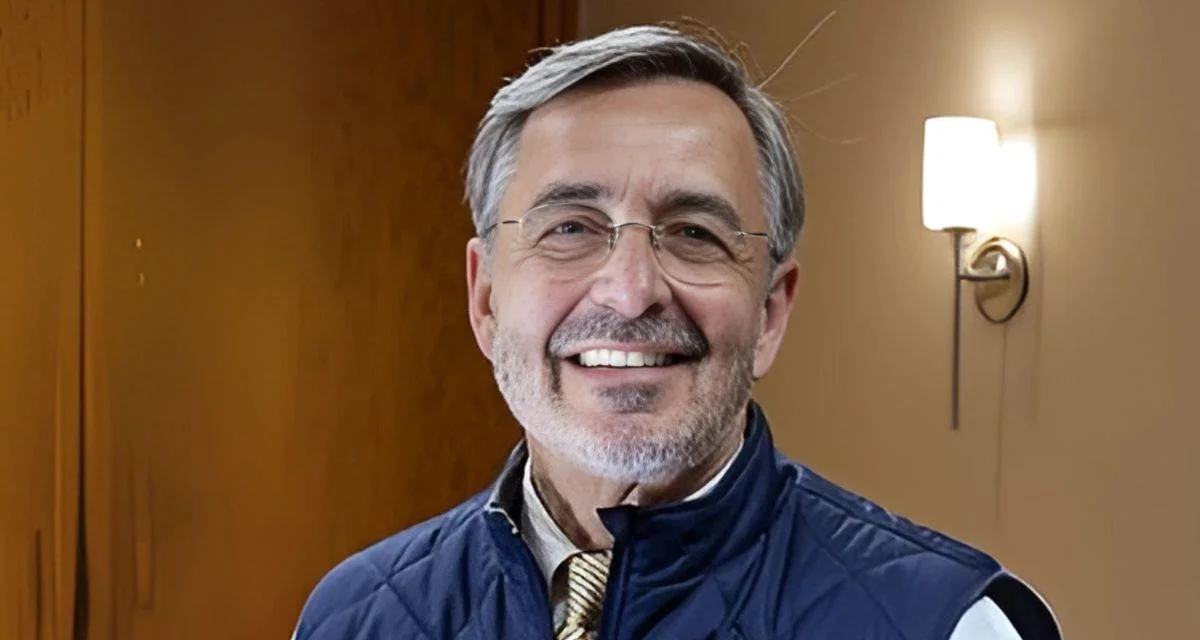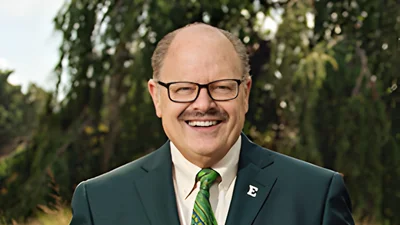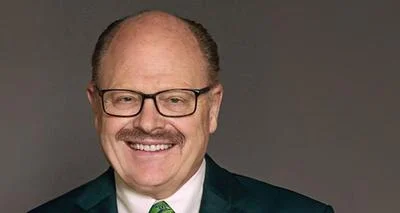Domenico Grasso, President of University of Michigan Ann Arbor | Wikimedia
Domenico Grasso, President of University of Michigan Ann Arbor | Wikimedia
Nearly 200 countries are meeting in Belém, Brazil, for COP30, the annual international climate change conference. Several experts from the University of Michigan are offering their perspectives on key topics discussed at the summit.
Jonathan Overpeck, dean of the School for Environment and Sustainability, emphasized the need to accelerate global decarbonization efforts and highlighted three priorities: “COP30 needs to continue the acceleration of climate action globally in several important ways. The first is to be clear that the goal of global decarbonization is more important than ever, and that every country needs to increase efforts to transition to low-carbon energy. The second is to strengthen efforts by wealthy countries who have contributed the most to climate change to help low- and middle-income countries decarbonize their energy systems and mobility. And the third is for wealthy countries to increase their ‘loss and damage’ funding to help low- and middle-income countries recover from the increasing rate of disasters due to the global climate change they did little to cause.
“Despite a new fossil fuel-friendly administration, the U.S. continues to deploy low-carbon energy and mobility solutions. These solutions are becoming more affordable and less polluting than fossil fuels everywhere around the globe, and COP30 needs to make it clear that the nations of the world are committed to halting climate change and helping those who need assistance. Climate action must continue to accelerate even more starting with COP30.”
Jennifer Haverkamp, professor from practice of law and public policy, noted financial challenges facing COP30: “As always, financing climate action—by whom, by when and how much—is a central issue for this COP. The Brazilian hosts want an agreed road map for implementing last year’s commitment of $300 billion per year—a heavy lift as the global economy shudders from trade wars and the U.S. has shuttered its international aid program. It’s actually good that the Trump administration isn’t sending a high-level delegation, seeing how they’ve worked to undermine a landmark climate agreement at the International Maritime Organization and teamed up with the Saudis to torpedo a global plastics treaty. The U.N. has a much better shot at advancing its climate agenda without saboteurs at the table.
“Set in the heart of the Amazon, the Belem COP’s success will also hinge on Brazil’s ability to launch its Tropical Forests Forever Facility, designed to compensate countries for preserving tropical forests. Keeping those trees standing—and their vast carbon stores from being released—is critical to avoiding the worst impacts of climate change.”
Greg Keoleian, co-director of U-M’s Center for Sustainable Systems and MI Hydrogen initiative, expressed concern about U.S. federal leadership: “Lack of participation by high-level officials from the White House is irresponsible and represents a major setback for COP30 and climate action. Climate change is a global threat and requires international cooperation and trust. The Trump administration withdrew from the Paris Agreement and has attacked multiple policies that curb climate pollution. Deeply rooted in the president’s false declaration that ‘climate change is a hoax,’ there has been a major assault on science-based policy and climate action. Challenges to the Endangerment Finding, termination of EV tax credits and stoppage of offshore wind farm developments highlight just a few examples.
“Despite the White House’s alarming actions, industry, state and local governments, NGOs, communities and individual households are continuing to play a vital role in implementing solutions to curb climate pollution. These stakeholders are continuing to stand up for climate along with other national governments committed to COP30.”
Kai Zhu addressed ecosystem resilience: “This past year, we have witnessed record-breaking heatwaves, wildfires and floods, which highlight that climate change is not a distant threat but a present-day crisis. To tackle these escalating impacts, we must urgently focus on both mitigation (reducing emissions and conserving carbon-storing ecosystems) and adaptation (supporting communities and biodiversity in adjusting to rapidly changing conditions). Scientific evidence demonstrates that healthy, resilient ecosystems play a crucial role in both strategies. It is more important than ever to invest in solutions that protect both nature and people, ensuring a sustainable future as climate risks intensify.”
Mike Shriberg discussed water issues related to climate: “The way many people in the region and around the world are experiencing impact of climate change is through changes in water access, availability and variability... While we can’t stop changes already taking place... we can lower consequences... through making/following through on global commitments.”
On artificial intelligence (AI) energy demand issues relevant at COP30 discussions:
Mosharaf Chowdhury stated: “AI is advancing rapidly... We need AI as energy-efficient as possible so it can run without consuming huge resources... correcting [inefficiencies] can reduce energy demand by up 30% without impacting training speed/accuracy.”
Rabab Haider commented: “There’s potential for AI... but are data centers used for positive impact? Unprecedented load growth from AI data centers comes as we struggle reducing emissions... delaying decommissioning coal plants [and] fast-tracking new fossil-fuel generators onto grid.” She added this challenge could lead innovation if priorities align toward sustainability.
Chris Ruf explained advances in hurricane tracking: “It is especially important monitor hurricanes as often as possible because they’re intensifying more rapidly... Satellite constellations drastically reduce time between measurements… improving forecast accuracy.”
Sue Anne Bell highlighted disaster response health workforces’ role: “At COP30 there’s opportunity bring attention role global health workforce as frontline defense against crisis… Keeping evidence/science forefront essential build healthy resilient communities…”
On environmental justice:
Tony Reames said: “The hope…is that COP30 becomes real opportunity translate pledges into real action…focusing on community-led adaptation…protection environmental defenders…and greater inclusion marginalized communities…Although US government pulled back under Trump administration these issues maintain salience globally…”
Ana Paula Pimentel Walker described parallel events like Cúpula dos Povos (Peoples’ Summit): “This summit serves essential platform marginalized communities advocate justice…pre-COP meetings focused sharing innovative solutions displacement caused by change…”
Regarding nuclear energy:
Todd Allen stated: “International community support nuclear deployment extremely strong as countries look security sources clean/affordable…We need take care ensure only best technologies/models become commonplace ensure safety/security/public acceptance…”
Denia Djokić stressed equity concerns with expanding nuclear power: “…governments/industry/civil society must work together ensure growth capacity does not harm vulnerable populations…need innovative/responsible governance frameworks minimize harmful impacts widespread deployment…” She called for centering public interest over powerful actors during discussions.
Finally Brian McCullough pointed out sport sector's influence on sustainability messaging: “…fight against requires collective effort everyone team—including massive enterprise sport…Sport has dual role—to drastically reduce own emissions…and be influential educator/mobilizer…” He emphasized sports organizations' unique reach among audiences otherwise less engaged with such messages.





 Alerts Sign-up
Alerts Sign-up